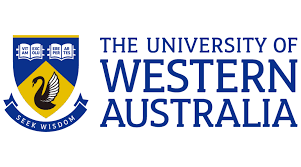University of Western Australia: Telethon grants give a boost to children’s health research
Six experts from The University of Western Australia have been boosted by Telethon grants to research the benefits of early breastmilk, understand the effect of poor groundwater during pregnancy, study acute respiratory infection in infants, improve the mental health of children with Central Auditory Processing Disorder, create safety data for the administration of multiple medications and provide an exercise rehabilitation program for children who experience barriers to activity.
Professor Valerie Verhasselt, Director of the Larsson Rosenquist Foundation Centre of Research for Immunology and Breastfeeding from UWA’s School of Medicine, leads a team of researchers from the Telethon Kids Institute, Joondalup Health Campus, and Edith Cowan University in the study of early breastmilk and its long-term health benefits.
Professor Verhasselt’s research shows early breastmilk, colostrum, is extremely rich in bioactive compounds that are absent from cows milks formula. It is believed insufficient intake of colostrum underpins development of long-term health issues such as allergy, infection and metabolic and cognitive disorders.
Funded by Channel 7 Telethon Trust and using data from the ORIGINS Project, her research examines the feeding practices of 10,000 children in WA.
Dr Bonnie Furzer, Exercise Physiologist from the School of Human Sciences and Director of Thriving in Motion, received funding for her exercise program, now in its 11th year of Telethon support. This unique exercise service is life changing for children and young people whose ability to participate in community or school-based physical activity has been impacted by physical, mental or behavioural conditions.
Dr Angela Fonceca, a Research Fellow from UWA’s School of Biomedical Sciences, was a recipient for her work on Respiratory Syncytial Virus, the leading cause of hospitalisation in children under five years with acute respiratory infection in WA.
Dr Caitlin Wyrwoll, from UWA’s School of Human Sciences, studies the links between drinking poor quality groundwater, which is rife in remote and regional WA, with pregnancy complications. This will assist affected communities to advocate for improved water supplies.
Associate Professor Cornelia Locher, from UWA’s School of Allied Health, is collating information to generate safety data to ensure multiple medications administered concurrently to sick children do not interact when given together intravenously.
Dr Robyn Choi, from UWA’s School of Human Sciences, aims to improve the ability of school-aged children with Central Auditory Processing Disorder to process spoken information and enhance their mental health through a treatment of rhythmic exercise and music.

